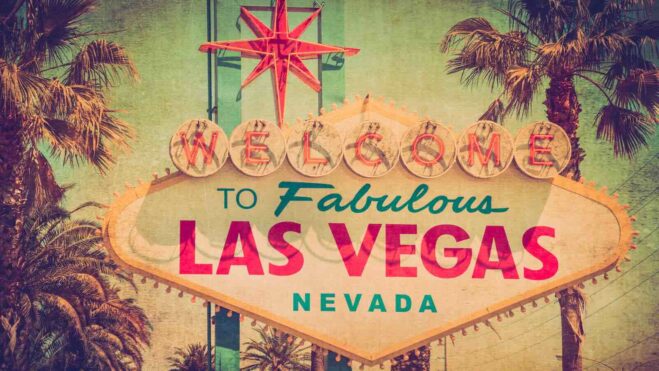Schuetz: Monopolies Are Bad Economic Actors, And Unfortunately, Gaming Regulatory Agencies Are Monopolies
Gaming regulatory agencies are monopolies, and as such, they feature high prices, are slow to innovate, and offer bad customer service.
7 min

I discovered the discipline of economics as a college student in the late 1960s. I studied it for many, many years, and one of my inner secrets is that I consider myself an economist. Having said that, if people ask me what I am, I normally answer, “I’m an old casino guy.” It is much safer and more respected than suggesting I am an economist.
People find an old casino guy somewhat interesting and redeeming. An economist, on the other hand, not so much.

Mentioning that I consider myself to be an economist generally starts a series of jokes about the profession. Such comments as economists have predicted nine out of the last five recessions are attributed to many.
Then there is the quote by Nassim Nicholas Taleb, “Years ago, I noticed one thing about economics, and that is that economists didn’t get anything right.” And then, of course, there is George Bernard Shaw, who has dutifully explained that, “If all the economists were laid end to end, they’d never reach a conclusion.” And on and on it goes …
I still cannot help myself and tend to look at most things through the lens of an economist. One of those things I look at as an economist is business regulation, especially regulation in the gaming space. As an economist, I see a great many concerning signs about gaming regulation.
The monopoly problem and more
In my past writings, I have suggested that gaming regulatory agencies are monopolies, and they generally behave like one in that they offer high prices, are slow to innovate, and offer bad customer service.
Aside from being monopolies, gaming regulatory agencies suffer a number of additional challenges. On several occasions, I have discussed regulatory capture, which is one of the strange topics within the dismal science of economics that essentially all economists agree upon. Basically, the argument is that the regulatory entity becomes more of an agent for the industry than for consumers and assists firms in restricting entry, fixing prices, securing subsidies, relaxing enforcement standards, and the like.
There is also that whole thing where most of the people appointed to regulatory positions don’t have a hint as to what they are regulating. I was appointed to the California Gambling Control Commission by the governor of California in 2011. I had worked many years in gaming, starting as a dealer and advancing to the CEO position of a Las Vegas casino company. At that time, no other appointed person in California in gaming had ever had one day of experience within the industry.
In fact, one could not have been employed by a gaming company for two years before being appointed to a gaming regulatory position in California, almost guaranteeing that they would never have people involved in the higher levels of regulation who knew anything about the real world of gaming.
I dodged this bullet because two years prior to my appointment, I was working for the state of Kansas (helping them establish casino gaming) and teaching at a Swiss college (teaching casino management and regulation). Can one imagine if California wanted someone to oversee health in the state, and they mandated that the person could not have worked for an employer involved in the health industry for the prior two years?
The bridge is out!
A terrible habit that politicians have in appointing people to gaming regulatory bodies is that they appoint fellow politicians or government employees. I would argue that this becomes something akin to the blind leading the blind. Imagine if the people who regulate the construction of bridges in America were all ex-politicians and government employees with no background in bridge building. Driving across a bridge would become a whole new spiritual adventure for most drivers.
Gaming regulatory bodies also operate within and are part of government bureaucracies. This creates an additional set of challenges. I do not want to belabor this point but let me suggest that in the building that housed my office as a regulator, the temperature control was not maintained on weekends because no one was there. Employment in the private sector versus the government is a totally different trip.
I was also fascinated to learn that most government employees, especially those in higher positions, abhor being referred to as bureaucrats. I would start sentences from time to time in meetings with: “We bureaucrats … ” and this seemed to annoy the other bureaucrats in the room.
Studies on the behavior of bureaucratic environments can assist regulators in improving the effectiveness of the agencies by pointing out their blind spots and weaknesses. First, however, an appreciation must exist that they are bureaucrats working in bureaucracies. Denial is a terrible drug.
Prices go up, quality goes down
Back to the point: I want to talk about a gaming regulatory agency as a monopoly and what economics tells us about monopolies.
As mentioned, the discipline of economics tells us that monopolies charge higher prices for things versus items or services produced in environments where there is greater ease of entry. Anyone who remembers the good old days of cable TV or cell phone coverage where there was just one provider appreciates that monopolies priced aggressively.
In fact, a great many regulatory agencies exist to oversee the monopolies that provide electricity, water, gas, and other public utilities. The whole purpose of these regulatory agencies is to ensure that the pricing model used by these utilities is not exploitive upon consumers because there is basically only one provider of the good or service in the market.
How does a regulatory agency increase prices? Let me count the ways.
I have filed over 120 gaming applications with regulatory agencies during my career. The number is probably much higher than that, but 120 is enough. I was never responsible for paying for them, for they were always paid for by the firm I worked for. In some jurisdictions, the regulator charges a flat fee; in others, the firm would pay an estimate provided by the jurisdiction of the final cost and then level up against a final cost accounting.
In short, in many jurisdictions, regulatory agencies have a great deal of discretion regarding how to price such things, and the consumer of the regulatory product cannot shop for a better price. One can only suspect that many heads of regulatory agencies often used investigative charges to level up budget challenges.
Justifications and vacations
As an aside, regulators can also use the licensing process to justify an agency expansion, especially if the industrial participants start suggesting to the politicians that the licensing process is too slow. The solution then becomes to add agents, which is most consistent with theories of bureaucratically induced growth. Agencies like to grow, which was a topic of the late economist William Niskanen, who suggested that agency leadership understands that salary levels, size of office, and other benefits grow as the agency grows.
It was also interesting to note that when I was licensed in a small Southern state, the investigator spent a fair amount of time doing interviews and checking my records in person in Las Vegas, where I used to live and work. When I was later being licensed in Nevada, upon returning there, no one seemed to need to run back and spend time in the small Southern state to check documents and interview people in person.
In the early days of iGaming, it was fun to watch who in the agencies flew off to do interviews and check records overseas. It seemed that the agency leaders flew to the European capitals and picturesque locations like Malta and Gibraltar, and the people of less stature got stuck flying to Guernsey, Alderney, and other challenging destinations.
There is even a slang term that captures the willingness of regulators to travel for investigations: investication, combining the words investigation and vacation.
Related to regulatory indifference to costs imposed on the industry and addressing weaknesses in delivering excellent service, there was a regulatory agency that was well-known for taking an extraordinary amount of time to get approvals through the regulator’s lab. Operators were furious behind the scenes because they could not get new products to market without long delays, and this situation was not just a short-term glitch. The costs of this inefficiency were real and significant to the industry.
In essence, this captures the added costs regulators can impose on the industry and the absence of concern about providing timely service.
I would also suggest that regulatory agencies’ response times to questions directed through their phone lines and “contact us” links are fundamentally slower than those contacts to entities hoping to sell a person something in a competitive environment.
Does the rule make sense?
In the area of innovation, few agencies employ sunset laws on regulations to see if they are still relevant. I have often written of the silliness of mandating that key employees list all their scars and tattoos. This started as a result of the old days when people with law enforcement backgrounds dominated gaming regulatory agencies.
In crimes such as rape or other violent assaults, the victim’s memory might be impaired by the shock of the event. They might remember a scar or a tattoo, however, and so this was generally information that detectives sought out.
Regulators continue to ask applicants to list their scars and tattoos, with a notice that the application will be rejected without a complete inventory. This means that circumcisions, mastectomy scars, scars related to breast enhancements or reductions, Caesarean section scars, and the like must be given to a government bureaucrat to store in a government database. In my 50 years in and around the business, I have never heard of an instance where a scar mattered. Moreover, I have never found a government bureaucrat who will admit to auditing the bodies of the applicants to ensure compliance.
This is an antique vestige of a bygone era that makes no sense, yet regulators continue to do it.
It was also the case in California that the regulations stipulated that paper records were mandated in some circumstances, a strange compliance requirement in today’s digital world.
The point of all of this is that regulatory agencies are monopolies, and they generally behave as monopolies. They are not exposed to the pressures to work to reinvent themselves or reduce costs for their clients. They are not pressured to develop new processes, increase efficiency, or enhance customer service. Until we work to understand that this is the reality of the gaming industry, change will be slow, for a problem can’t be solved until stakeholders admit that it exists.






